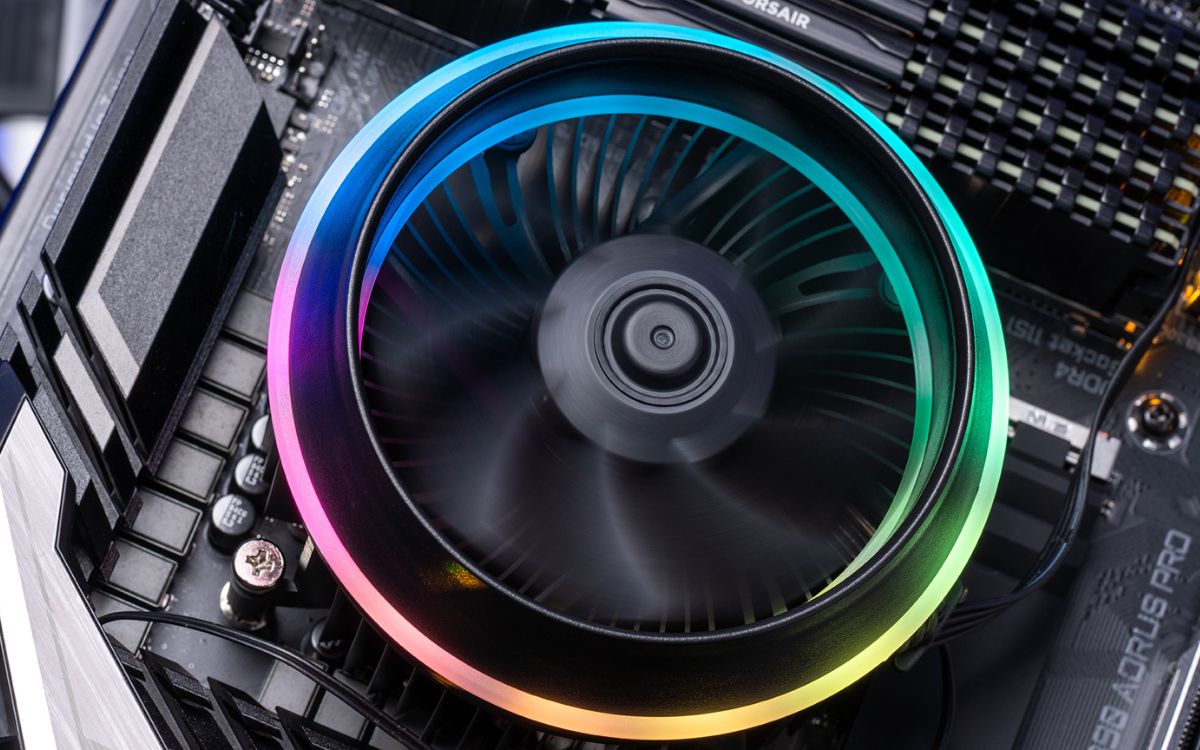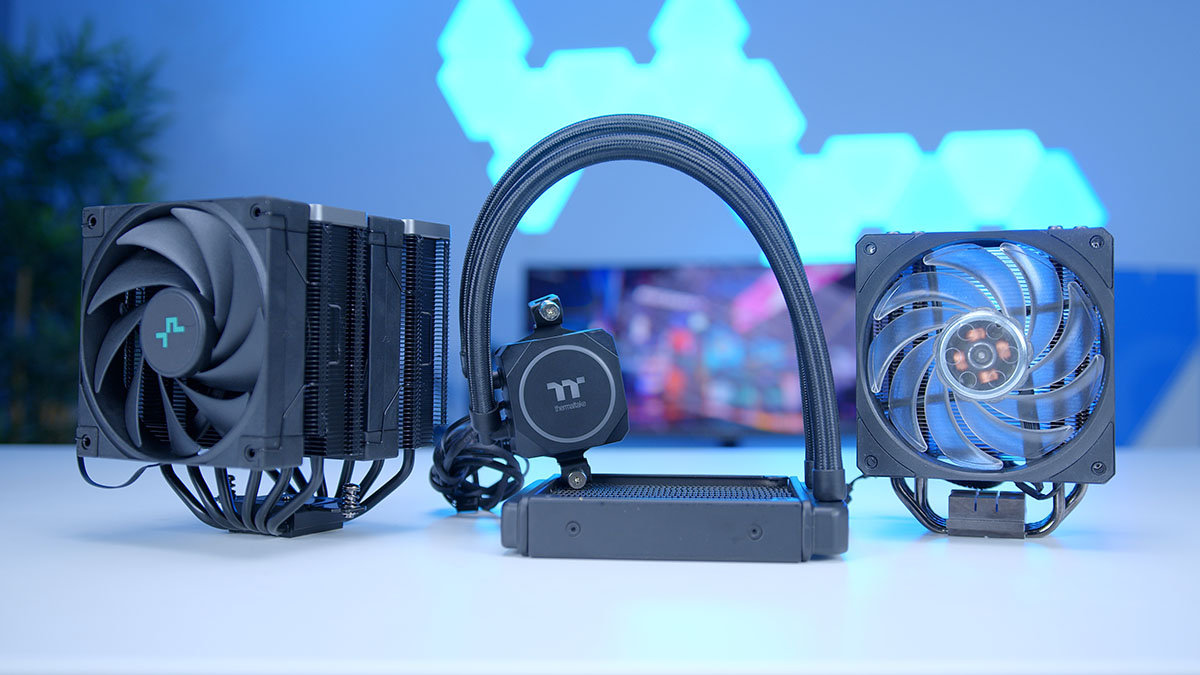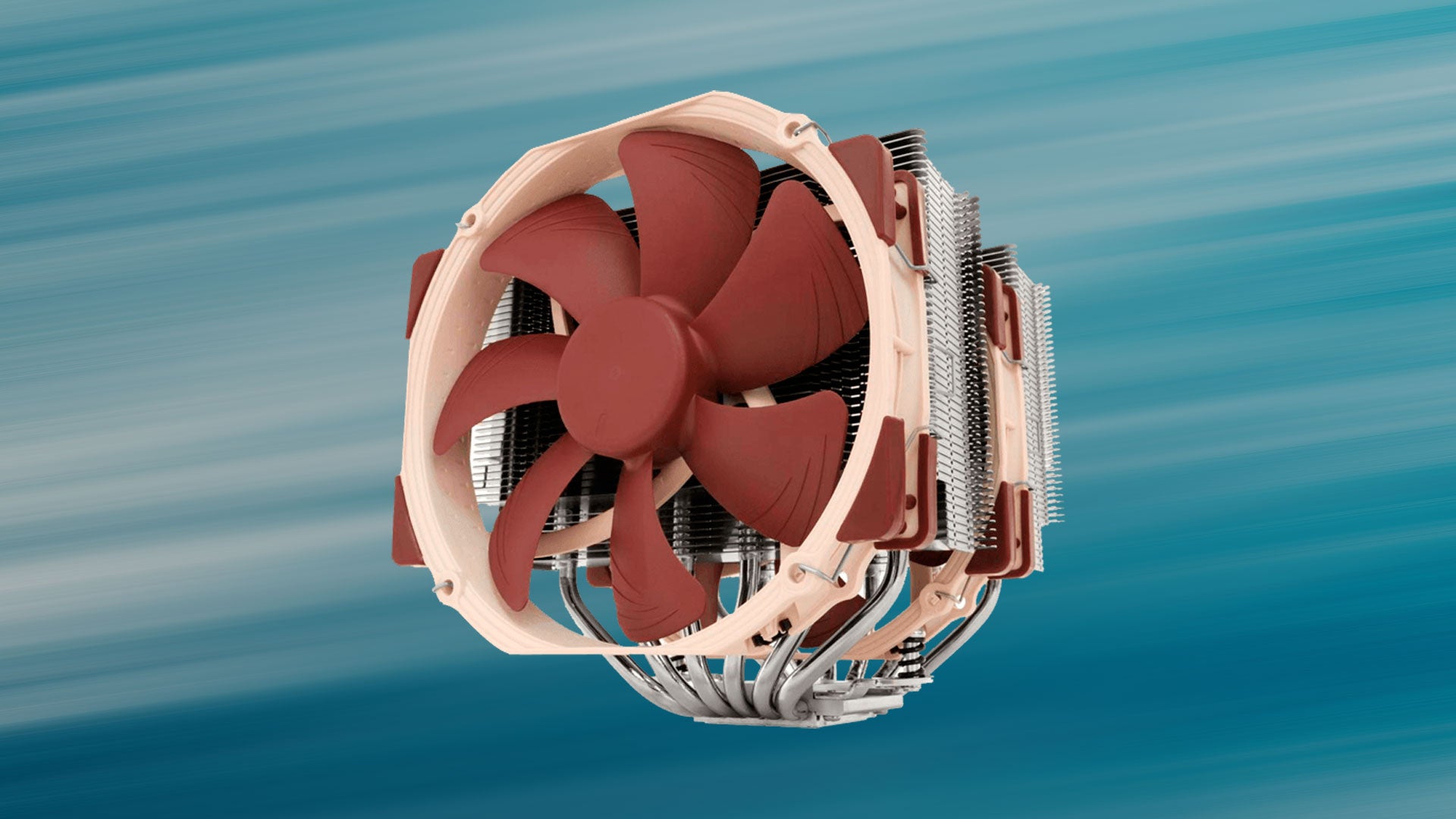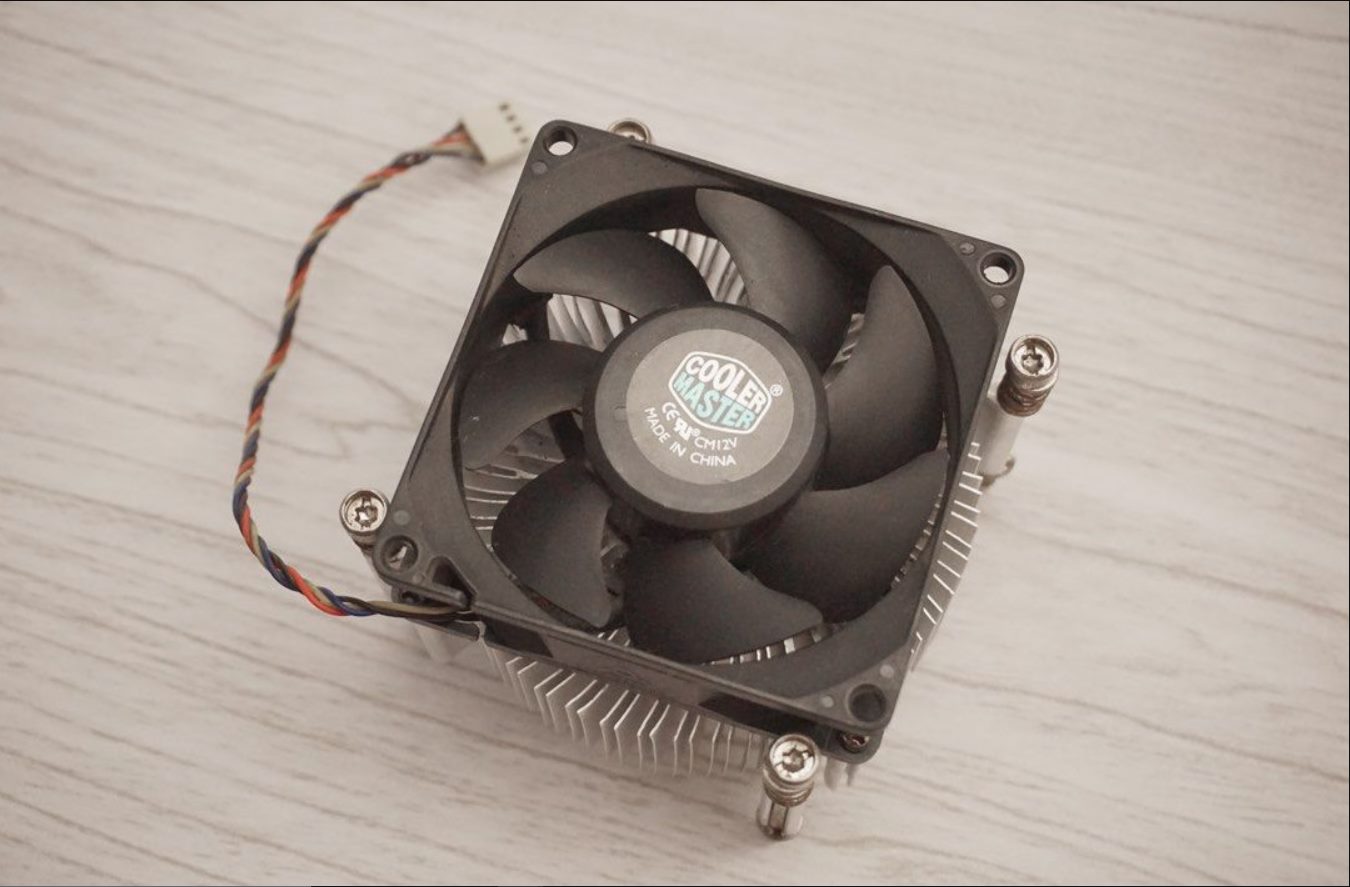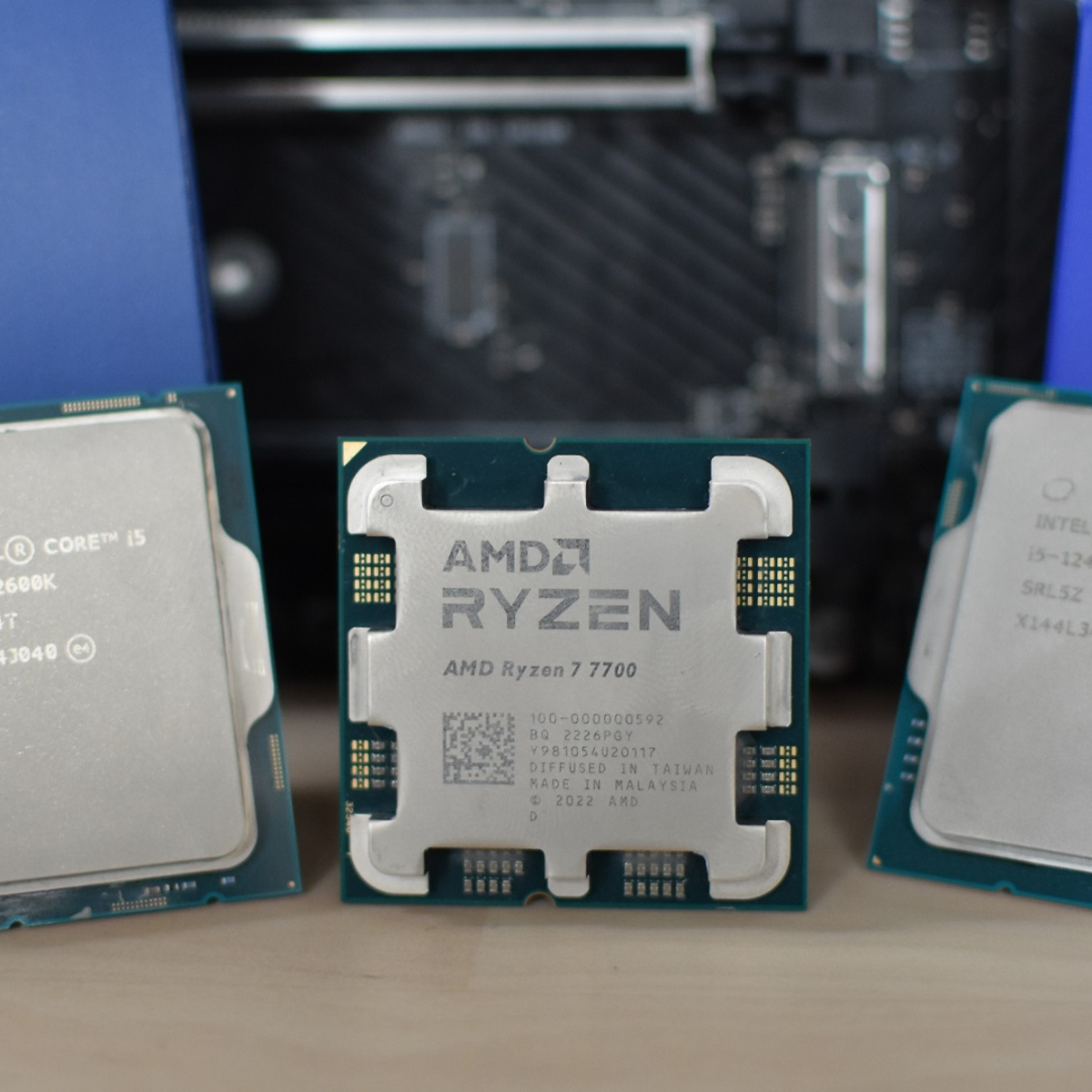Introduction
Welcome to the world of gaming, where every millisecond counts and every frame matters. As a passionate gamer, you know that a powerful CPU (Central Processing Unit) is crucial for a seamless and immersive gaming experience. But, did you know that an efficient CPU cooler is equally important to keep your processor running smoothly and prevent overheating?
When it comes to CPU coolers, there are two main types to choose from: air coolers and liquid coolers. Air coolers, as the name suggests, use fans to circulate air and dissipate heat, while liquid coolers rely on water or coolant to cool down the CPU. Both types have their advantages and considerations, so let’s take a closer look at each to help you make an informed decision.
Before delving into the specifics of CPU coolers, it’s essential to understand their significance. A powerful CPU generates a significant amount of heat, and if not adequately cooled, it can throttle the performance and even damage the processor over time. The CPU cooler’s primary role is to dissipate this excessive heat, ensuring optimal performance, and prolonging the lifespan of your CPU.
Now, let’s explore the two types of CPU coolers in more detail.
Air Coolers
Air coolers are the most common and affordable type of CPU coolers available in the market. They consist of a heatsink, which is a collection of metal fins, and a fan or multiple fans that blow air over the fins to dissipate heat. The air coolers rely on the principle of convection to cool down the CPU.
One of the key advantages of air coolers is their simplicity. They are easy to install and generally do not require any additional maintenance or complicated setups. They also tend to be more durable and have a longer lifespan compared to liquid coolers, as there are no moving parts or liquid that can potentially leak or fail.
When choosing an air cooler, consider the size of your CPU cabinet and the clearance space around your CPU socket. Air coolers come in various sizes, and it’s crucial to ensure that the cooler you choose will fit comfortably in your setup without obstructing other components.
Another factor to consider is the cooling performance. Air coolers are generally less expensive than liquid coolers, but they may not provide the same level of cooling efficiency, especially under heavy overclocking or extreme gaming scenarios. However, there are high-end air coolers available on the market that can rival the cooling capability of liquid coolers.
Noise can also be a consideration when choosing an air cooler. While modern air coolers are designed to run silently, some high-performance models with larger fans may generate more noise. Check the noise levels specified by the manufacturer to ensure that it aligns with your noise tolerance level.
In summary, air coolers offer a cost-effective and reliable cooling solution for your gaming CPU. They are straightforward to install, durable, and provide adequate cooling performance, especially for gamers who don’t engage in extreme overclocking. However, if you’re a hardcore gamer looking for the ultimate cooling performance, you might consider exploring liquid cooling options, as we’ll discuss in the next section.
Liquid Coolers
Liquid coolers, also known as all-in-one (AIO) coolers, are becoming increasingly popular among gamers and enthusiasts. Unlike air coolers, which rely on fans and heat sinks, liquid coolers use a closed-loop system with a pump, radiator, and liquid coolant to dissipate heat from the CPU.
The primary advantage of liquid coolers is their superior cooling performance. The liquid coolant can absorb heat more efficiently than air, allowing for more effective heat dissipation. This is especially beneficial for users who engage in heavy overclocking or run demanding gaming applications that put a significant load on the CPU.
Another advantage of liquid coolers is their compact design. Liquid coolers typically consist of a small pump unit combined with a radiator, which can be mounted on the rear, top, or front of your CPU cabinet. This frees up valuable space within your setup and allows for better airflow around other components.
Noise levels are generally lower in liquid coolers compared to high-performance air coolers. Since the heat dissipation happens away from the CPU, there is less reliance on fans directly above the processor, resulting in quieter operations.
However, liquid coolers do come with some considerations. They can be more expensive than air coolers, particularly when opting for high-end models. Additionally, installation can be slightly more complex compared to air coolers, as it involves mounting the radiator and securing the pump unit. Ensuring proper cable management and fan orientation is crucial to maximize cooling efficiency.
It’s also important to note the possibility of leaks, although they are relatively rare. AIO coolers are designed with sealed loops, minimizing the risk of leakage. However, accidents can happen, and it’s essential to check for any signs of leakage or damage regularly.
In summary, liquid coolers offer excellent cooling performance and a compact design that can be beneficial for gamers who push their CPUs to the limit. They provide efficient heat dissipation, quieter operations, and more flexibility in terms of installation and airflow management. However, they come with a higher price tag and slightly more complex installation requirements.
Performance vs. Noise
When choosing a CPU cooler for gaming, it’s essential to strike a balance between performance and noise levels. While the primary function of a cooler is to dissipate heat and prevent thermal throttling, it’s also crucial to consider the noise generated by the cooling solution.
Performance-wise, liquid coolers generally have the edge over air coolers, especially when it comes to extreme overclocking or running high-end gaming applications. Liquid coolers can handle higher thermal loads more effectively, resulting in lower CPU temperatures and better performance stability.
On the other hand, air coolers can still provide sufficient cooling performance for most gaming scenarios, especially if you’re not engaging in heavy overclocking. High-quality air coolers with larger heatsinks and multiple fans can match the cooling efficiency of liquid coolers, while being more affordable.
When it comes to noise levels, air coolers tend to have a little edge over liquid coolers. Since air coolers rely primarily on fans, the noise generated is directly related to the fan speed. With proper fan control and choosing models with low noise levels, it’s possible to keep the noise output minimal while maintaining adequate cooling performance.
Liquid coolers, with their pump and radiator design, are generally quieter compared to high-performance air coolers. The pump operates at a constant speed, and the radiator fans can run at lower RPMs, resulting in reduced noise levels. However, some high-end liquid coolers with powerful pumps or larger radiator fans can generate more noise compared to mid-range air coolers.
To find the ideal balance between performance and noise, consider your specific gaming needs. If you’re a passionate gamer who frequently engages in resource-intensive tasks and overclocking, a liquid cooler might be the best choice for superior performance. However, if you prioritize a quieter gaming experience or are on a tighter budget, an air cooler can provide sufficient cooling capabilities with fewer noise concerns.
In summary, while liquid coolers offer better performance and slightly quieter operation, air coolers can still provide sufficient cooling for most gaming scenarios while being more affordable. Consider your specific gaming requirements and choose a CPU cooler that strikes the right balance between performance and noise levels to enhance your gaming experience.
Compatibility with Your CPU
One crucial aspect to consider when selecting a CPU cooler for gaming is its compatibility with your specific CPU. Not all coolers are compatible with every CPU socket, so it’s essential to ensure that the cooler you choose is compatible with your CPU’s socket type.
CPUs typically have specific socket types, such as Intel’s LGA (Land Grid Array) or AMD’s AM (Alternative Module) sockets. Each socket has different mounting mechanisms and layouts, and the CPU cooler must have the corresponding mounting system to attach securely to the CPU.
Before purchasing a CPU cooler, identify the socket type of your CPU and check if the cooler explicitly supports that socket. Manufacturers usually provide a list of compatible sockets in the cooler’s specifications. It’s essential to cross-verify this information to avoid any compatibility issues.
Additionally, consider the size and weight of the CPU cooler. Some larger air coolers may obstruct RAM slots or interfere with adjacent components on your motherboard. Ensure that the cooler’s dimensions fit comfortably within your CPU cabinet without causing any clearance issues.
For liquid coolers, it’s crucial to ensure that the radiator size is suitable for your setup. Radiators typically come in various sizes, such as 120mm, 240mm, or 360mm, referring to the length of the radiator. Ensure that your CPU cabinet has enough clearance and mounting space for the radiator size you choose.
Lastly, consider the thermal design power (TDP) rating of your CPU. The TDP refers to the maximum amount of heat generated by the CPU, and it’s crucial to choose a CPU cooler with a TDP rating that can handle the heat output of your CPU. Higher TDP CPUs generally require more powerful coolers for effective heat dissipation.
By ensuring compatibility between your CPU and the cooler, you can guarantee a secure fitment and optimal cooling performance. Double-check the cooler’s specifications, compatibility list, and refer to your CPU’s documentation to make an informed decision.
Ease of Installation
When choosing a CPU cooler for gaming, considering the ease of installation is essential, especially if you plan to install it yourself. The installation process should be straightforward, regardless of whether you opt for an air cooler or a liquid cooler.
Air coolers are generally easier to install compared to liquid coolers due to their simpler design. They typically come with a universal mounting system that is compatible with multiple CPU sockets. The installation process involves attaching the mounting brackets to the CPU socket, placing the heatsink on top of the CPU, and securing it with screws. Some air coolers even come with pre-applied thermal paste, eliminating the need for manual application.
Liquid coolers, on the other hand, involve a slightly more complex installation process due to the additional components such as the pump, radiator, and tubes. The pump unit needs to be securely attached to the CPU socket, and the radiator must be mounted in a suitable location within your CPU cabinet. Additionally, ensuring proper cable management for the fans and pump power cables is important for a clean and organized setup.
Manufacturers often provide detailed installation instructions and step-by-step guides with their CPU coolers. These resources can be immensely helpful, especially for users who are new to installing coolers. Additionally, many manufacturers have online video tutorials that demonstrate the installation process, making it even easier to follow along.
When considering the ease of installation, it’s also beneficial to check if the cooler’s design allows for easy access to other components. This is particularly important for air coolers, as larger heatsinks may obstruct RAM slots or interfere with adjacent components. Ensure that the cooler’s design doesn’t pose any clearance issues or make it difficult to access other components for maintenance or upgrades.
Ultimately, choosing a CPU cooler with a straightforward installation process can save you time and effort. It allows you to quickly and efficiently set up the cooler, ensuring optimal cooling performance for your gaming CPU.
Price Range
When it comes to CPU coolers for gaming, there is a wide range of options available to suit different budgets. The price of a CPU cooler is determined by factors such as its cooling performance, brand reputation, design, build quality, and additional features.
Air coolers are generally more budget-friendly compared to liquid coolers. Entry-level air coolers can provide adequate cooling performance for most gaming scenarios without breaking the bank. These air coolers often come with a basic design, a single fan, and a smaller heatsink. They are an excellent option for gamers on a tight budget or those who don’t plan on engaging in heavy overclocking.
Mid-range air coolers offer improved cooling performance with larger heatsinks and multiple fans. These coolers provide a good balance between price and performance, making them suitable for gamers who want better cooling efficiency without splurging on high-end options.
High-end air coolers are designed to deliver exceptional cooling performance, often rivaling the capabilities of liquid coolers. These coolers come with larger heatsinks, high-quality fans, and advanced heat pipe technology. While they tend to be pricier, they offer excellent value for gamers looking for top-notch cooling performance.
Liquid coolers, on the other hand, generally have a higher price range compared to air coolers. The complexity of the liquid cooling system, including the pump, radiator, and coolant, contributes to the higher cost. Entry-level liquid coolers provide reliable cooling performance with smaller radiators and simpler designs.
Mid-range liquid coolers offer improved cooling performance and often come with larger radiators, more powerful pumps, and better quality fans. These coolers are suitable for gamers who prioritize excellent cooling performance and want to explore overclocking possibilities.
High-end liquid coolers feature larger radiators, high-performance pumps, and advanced features like customizable RGB lighting and software control. These coolers offer top-of-the-line cooling capabilities and are ideal for enthusiasts who demand the best cooling performance and aesthetic enhancements.
It’s important to consider your budget and the level of cooling performance you require from a CPU cooler. While high-end options may offer superior cooling capabilities, you can still find excellent options within a more affordable price range. Compare prices, read reviews, and evaluate the features and performance of different coolers to find one that fits your budget and meets your gaming requirements.
Top CPU Coolers for Gaming
Now that we’ve discussed the different aspects of CPU coolers, let’s explore some of the top options available for gaming:
- Noctua NH-D15: This air cooler is highly regarded for its exceptional cooling performance, thanks to its dual tower heatsink and dual fans. It offers near-silent operation and excellent compatibility with most CPU sockets.
- be quiet! Dark Rock Pro 4: Known for its sleek and stylish design, this air cooler features a large heatsink and dual fans for efficient cooling. It’s virtually silent in operation, making it perfect for gamers who prioritize a quiet gaming environment.
- Corsair H100i RGB Platinum: A popular liquid cooler, this all-in-one solution features a 240mm radiator and two high-performance fans. It delivers excellent cooling performance and comes with customizable RGB lighting to enhance the aesthetics of your gaming setup.
- NZXT Kraken X63: This liquid cooler boasts a 280mm radiator and two Aer P fans for optimal cooling. It offers outstanding cooling performance and comes with an advanced LCD screen on the CPU block for customization and monitoring.
- Cooler Master MasterLiquid ML240R: Featuring a 240mm radiator and dual MasterFan MF120R RGB fans, this liquid cooler offers powerful cooling and dazzling RGB lighting effects. It also comes with a user-friendly software control system for easy customization.
These are just a few examples of the top CPU coolers available for gaming. Each option provides reliable cooling performance and has unique features that cater to different preferences and budgets. Consider your specific gaming needs, budget, and compatibility requirements when selecting a CPU cooler.
Remember, the choice of a CPU cooler ultimately depends on factors such as cooling performance, noise levels, ease of installation, compatibility, and price. Research, read reviews, and compare different options to find the perfect CPU cooler that will keep your gaming CPU running smoothly and efficiently.
Conclusion
Choosing the right CPU cooler for gaming is crucial to maintain optimal performance and prevent overheating. Whether you opt for an air cooler or a liquid cooler, there are factors to consider such as cooling performance, noise levels, ease of installation, compatibility, and price.
Air coolers, with their simplicity, durability, and affordability, provide a cost-effective cooling solution for most gaming scenarios. They come in various sizes and offer reliable cooling performance, especially for gamers who don’t engage in extreme overclocking. On the other hand, liquid coolers excel in cooling efficiency and offer a compact design, making them ideal for overclocking enthusiasts and gamers who prioritize superior cooling performance.
Price range is another crucial consideration, with options available for different budgets. Air coolers generally have a lower price range, while liquid coolers tend to be pricier due to their more advanced designs. However, there are excellent options available within various price ranges, so it’s important to evaluate cooling performance and features when making a decision.
Additionally, considering factors like compatibility with your CPU, ease of installation, and noise levels can make the selection process smoother. Ensuring that the cooler is compatible with your CPU socket and easily installable will save you time and effort. Analyzing noise levels and choosing a cooler that aligns with your noise tolerance level will provide a more enjoyable gaming experience.
With various top CPU cooler options available, such as the Noctua NH-D15, be quiet! Dark Rock Pro 4, Corsair H100i RGB Platinum, NZXT Kraken X63, and Cooler Master MasterLiquid ML240R, you can find a solution that fits your needs and preferences.
In the end, taking the time to research, compare options, and understand your specific gaming requirements will help you find the perfect CPU cooler that not only keeps your processor cool but also enhances your overall gaming experience. So, dive into the world of gaming with confidence, knowing that your CPU is in good hands with an efficient and reliable cooler. Happy gaming!







